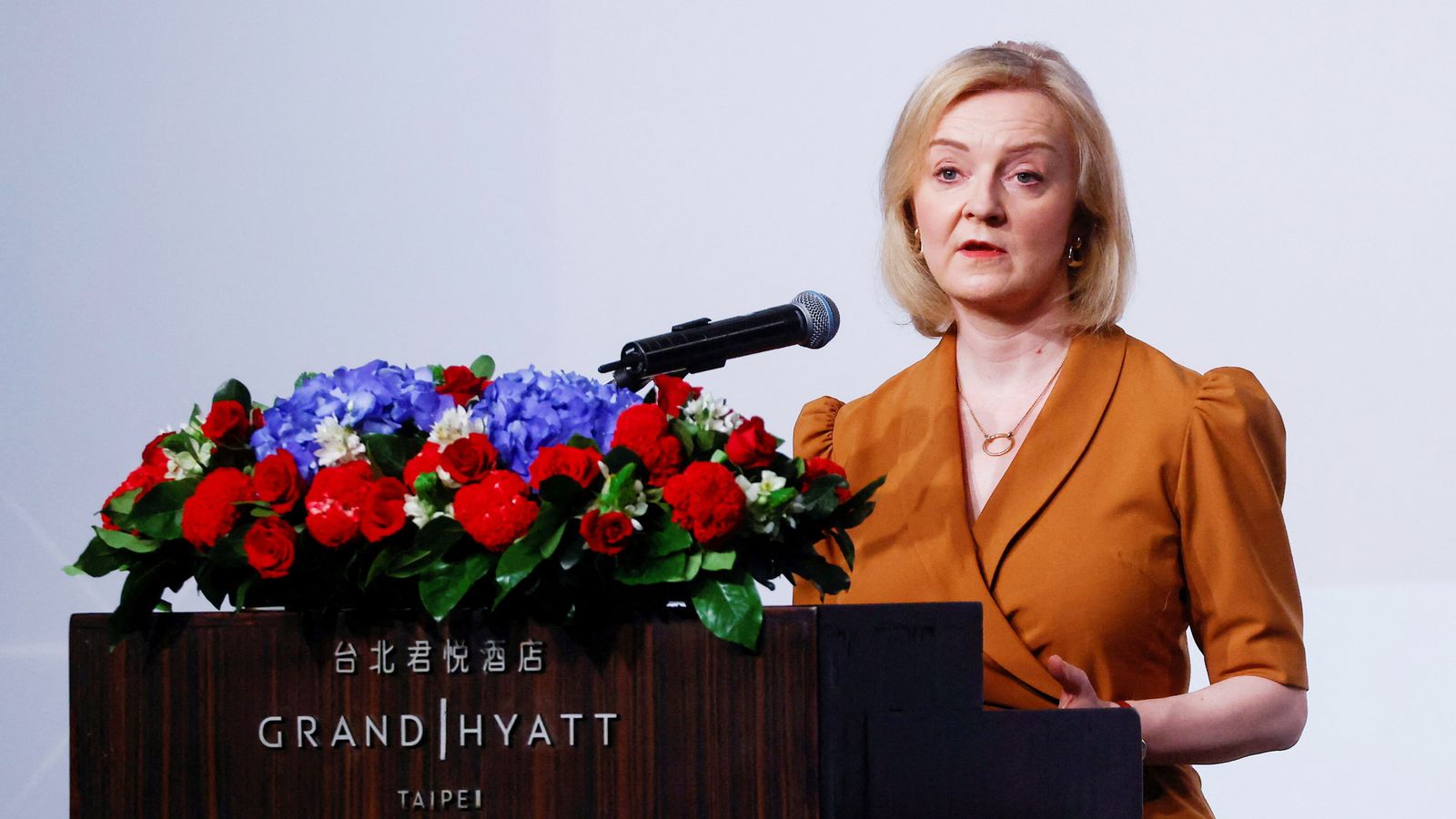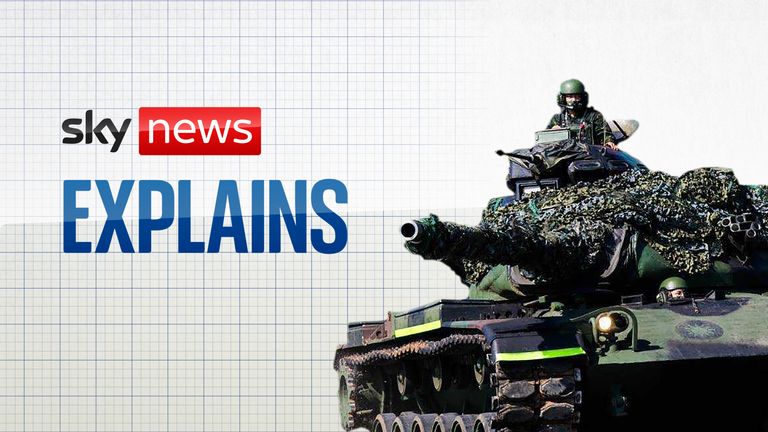
Rishi Sunak has rejected Liz Truss’s calls for Taiwan to be fast-tracked into a trans-Pacific trading bloc.
The UK is in the process of joining the Comprehensive and Progressive Agreement for Trans-Pacific Partnership (CPTPP), which includes countries like Canada, New Zealand, Australia, Chile and Japan.
Both China and Taiwan have applied to join the bloc as well, leading to political difficulties for the two administrations, building on existing tensions.
Analysis:
PM needs to leverage trust on world stage to boost popularity at home
Speaking during her controversial visit to Taiwan, former prime minister and foreign secretary Ms Truss made the case for Taiwan to be fast-tracked into the CPTPP.
But talking to journalists ahead of a G7 summit in Japan, Mr Sunak said that while he had not “actually seen the details” of Ms Truss’s speech, “I tell you that our approach to Taiwan is long-standing and it hasn’t changed”.
He added: “And again, it’s an approach that is completely aligned in substance and in language with all our allies.”
Allowing Taiwan into CPTPP would anger the Chinese Communist Party, which sees the island as part of its territory – with growing concerns they will take the republic by force.
A recent visit by US politician Nancy Pelosi to the island led to the CCP hosting numerous military drills.
Pushed on whether he would back Taiwan joining CPTPP, Mr Sunak said: “I think that we have a very strong, unofficial relationship with Taiwan as our allies do.
“I think that our position is united and aligned with our allies, and will continue.”
Ms Truss has also called for an “economic NATO” to be constructed in the Pacific in order to counter China’s influence.
Mr Sunak said he is “probably going to lead the session on economic security” at the G7, and that such talks would be an “increasing theme of discussions when you think about the challenges and threats we face now”.
And speaking about the UK’s physical presence in the region, he said: “We have a strong and increasing footprint in the security of the Indo-Pacific region.
“We have a strong interest in a free and open Indo-Pacific.
“We do not believe in any change in the status quo by force or coercion, and we will continue to work with our allies in making sure that that’s what happens.”
The current prime minister also rejected calls from his predecessor to call China a “threat” – as Mr Sunak did when he was running against Ms Truss in the race to take over from Boris Johnson last summer.
Instead, the government’s integrated review refresh called China an “epoch-defining and systemic challenge” – while the foreign secretary said it would be a “betrayal of our national interest” to isolate the authoritarian regime.
Mr Sunak said: “If you look at the language that we use in the integrated review, the language the Americans use, the Australians, the Canadians, the Japanese, there was a lot of dialogue between us as we were all developing our strategies.
“The language is very similar and I think we ultimately are very well aligned.”













